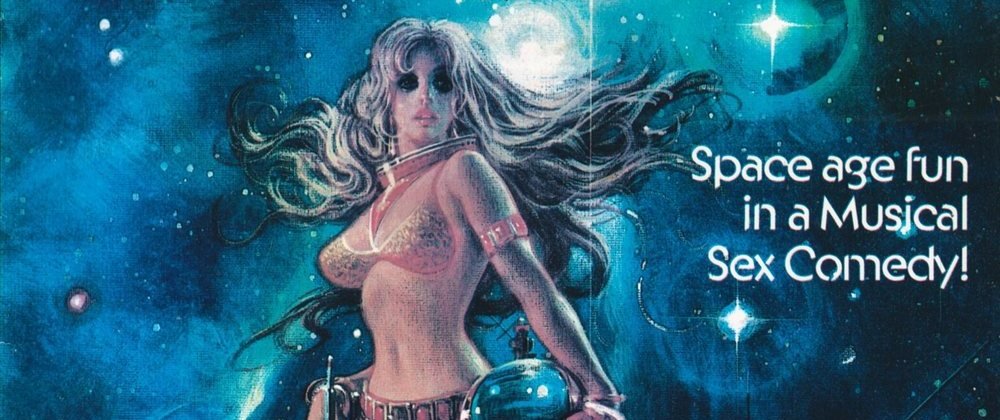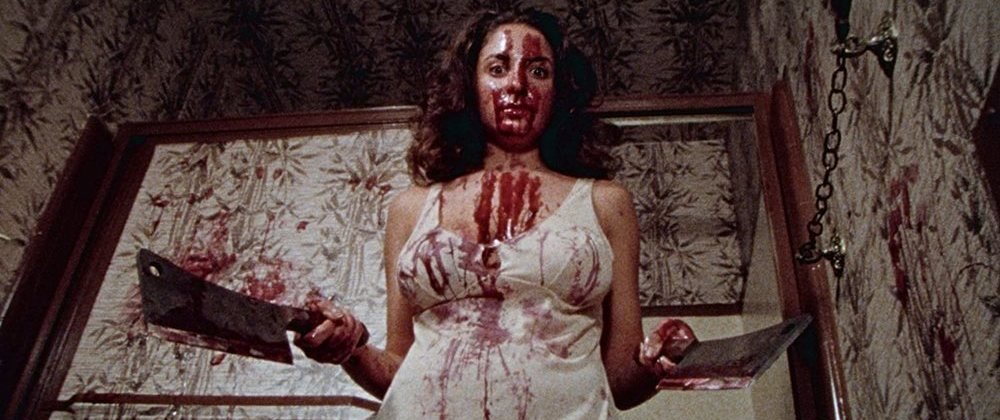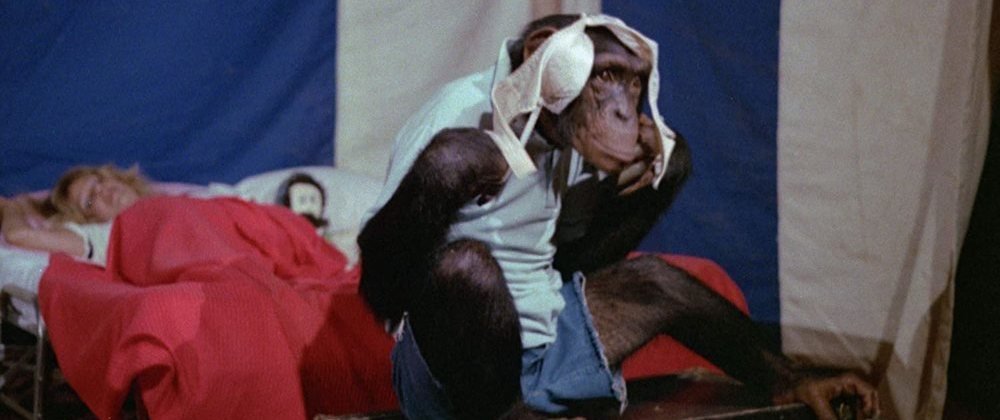ADAMSONMANIA! Part 6: The Autumn Of Adamson
As the '70s gave way to the '80s, the writing was on thewall for drive-in filmmakers. People were starting to watch movies at home viaVCRs and cable, major studios were co-opting the formulas that sustainedexploitation film studios via bigger-budgeted, slicker films like Jaws and Star Wars and distribution circuits were starting to tighten up asthe drive-ins experienced a slow fade-out. Al Adamson understood this and wouldbe out of the filmmaking game entirely by the mid-'80s.
His career ended as it began, as a journeyman whoapplied his can-do attitude and skills for cost-conscious production to whatevergenre was lucrative at a given moment. The final entry in Adamsonmania focuseson five films that define the autumn of Adamson's filmmaking career, a slate ofmaterial that covers everything from sleazed-up sexploitation to squeaky-cleanfamily fare. Each of these titles is available in Severin's excellent Al Adamson: The Masterpiece Collectionblu-ray box set. Background info for these capsule reviews is derived from The Flesh And Blood Files, theexcellent liner notes booklet by Bill Ackerman and Amanda Reyes included in thebox set.

Cinderella 2000: This is perhaps the strangest entry in the Adamson filmography and simultaneously one of the least entertaining. It takes the classic fairy tale, sets it in the future, makes it a musical and adds a sexploitation element that twists dystopian sci-fi in a sex-positive direction. There's potential in such a premise but it requires a sense of the absurd and a kinetic energy that Adamson lacks. He grinds it out in his usual dutiful, basically-stylized approach and it's pretty lethargic, especially in the European version padded with extra sexploitation fumbling-about. On the plus side, Catherine Erhardt is an appealing lead, there are a few catchy tunes and the occasional memorably odd bit like people in bunny suits dry-humping each other... but prepare for a long slog to get to those little nuggets of joy.
Sunset Cove: Adamson throws his hat in the teen sex comedy ring here and the results are a winner. This one works because the match of material and filmmaker is a savvy one: the laid-back Southern California 'hang sesh' vibe of the Crown International Pictures programmers being emulated here perfectly fits Adamson's habit of relaxed pacing. Gary Graver contributes excellent photography that captures both the surf and female curves with aplomb, John Carradine pops up for a charming cameo and there's a great use of local color, particularly during a fun "save the beach" concert/rally sequence. That said, the coolest thing about this is that it is a uniquely egalitarian version of the teen sex comedy where even the nerd and the overweight comic relief get laid.

Nurse Sherri: this typically quirky Adamson combo-platter blends late-in-the-game nurse flick sexploitation with possession horror a la Ruby. There are two versions of the this one, a straightforward mainly-horror version out from Vinegar Syndrome and a more evenly-blended mix of sexploitation and horror included on the Severin box. Severin's sex/horror blend actually works better, dispensing with a cult member subplot and adding a more substantial helping of nudity and softcore sex. There's still a lot of oddly numb horror material and dialogue-driven padding to work through but the sexploitation stuff is as amusing as it is eye-popping. The highlight has to be a scene where the heroine and her boyfriend have sex, followed by a pillow-talk "weirdest place I had sex" discussion that includes full flashbacks for both incidents.
Carnival Magic: Adamson's final two films found him moving into family fare and the results are actually pretty entertaining. The plot for this one revolves around a magician (soap opera star Don Stewart) and his talking-chimp sidekick becoming attractions in a traveling carnival plus unexpected subplots dealing with spousal abuse and vivisection. There's been a push to make this a bad movie fetish object along the lines of The Room, including MST3K riffing on it, but it's actually not a bad film. The storyline is weird as all hell but it has pretty decent performances, efficient direction from Adamson and a nice use of North Carolina local color. The result feels something like a cross between Disney's late '70s live action flicks and Clint Eastwood's "Philo Beddoe" comedies. It's as deadpan odd as it seems on the surface but also a lot more successful than the hipster brigade gives it credit for.

Lost: This was the final released feature for Adamson. It doesn't have the oddball appeal of Carnival Magic but it's another film where Adamson's sturdy, no-frills direction suits the material nicely, serving up a credible low-budget family flick in which a young girl with family issues ends up in a survival scenario in the middle of the Utah wilderness. Sandra Dee lends a little marquee value here, supported nicely by Carnival Magic vet Stewart and Jack Elam as a grizzled mountain man, and the survival movie portion of things is staged in a suitably gritty and effective manner (look out for a surprising cliff-jump stunt involving both kid and dog). The result feels kind of like those family dramas they used to show at church youth group, minus the proselytizing. Few people probably expected Adamson's career to end this way but it's a respectable little kid's flick.


